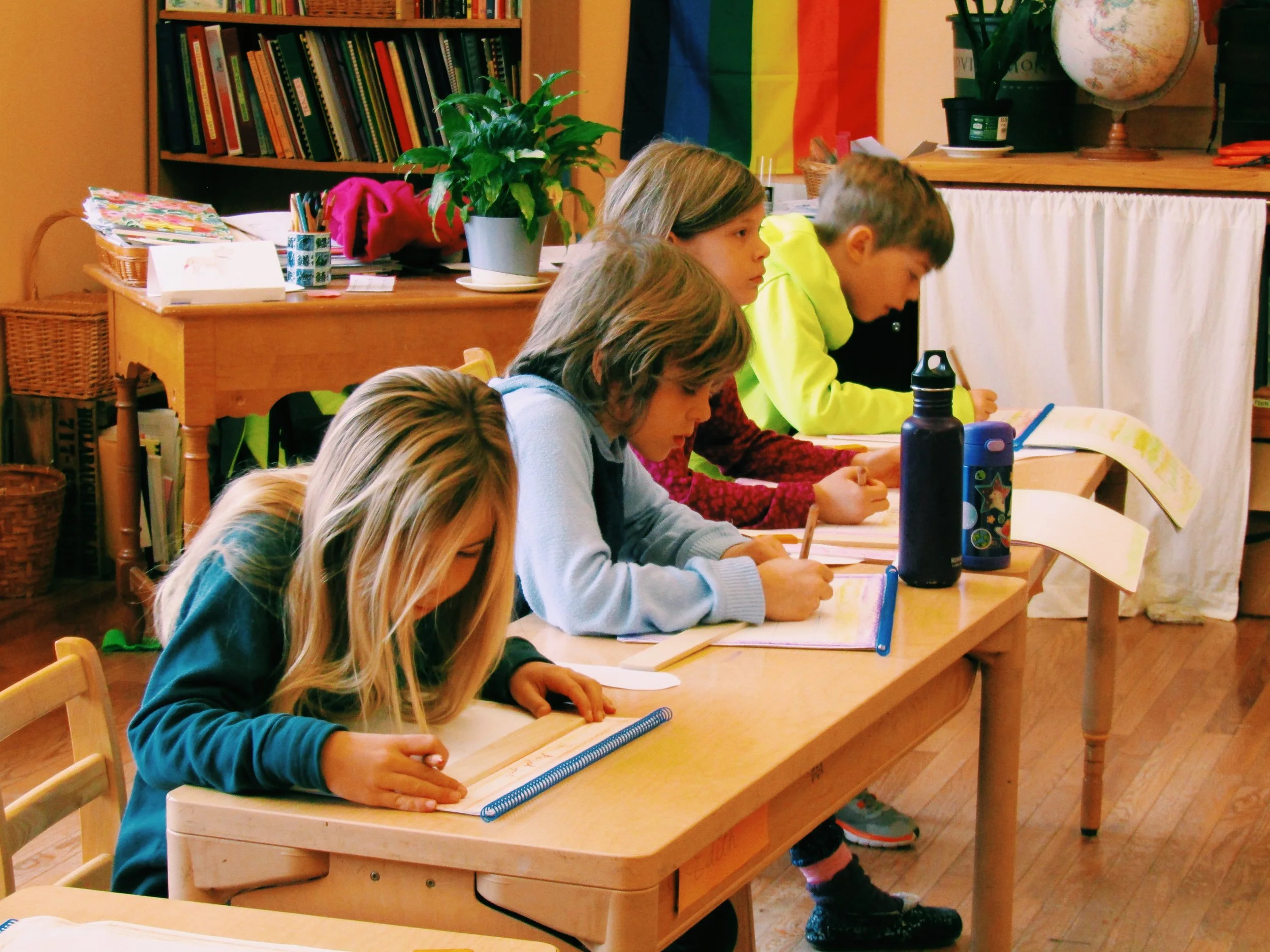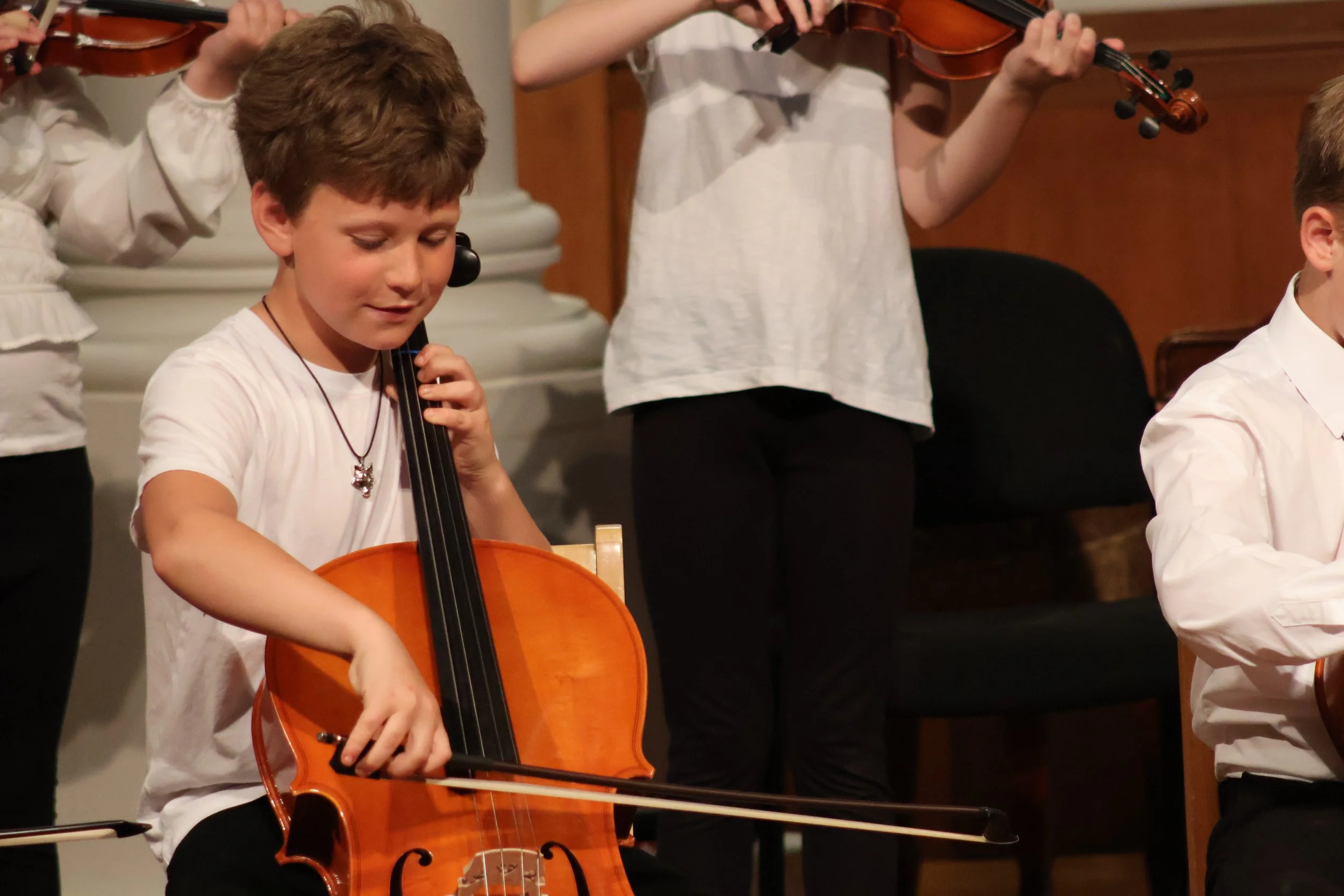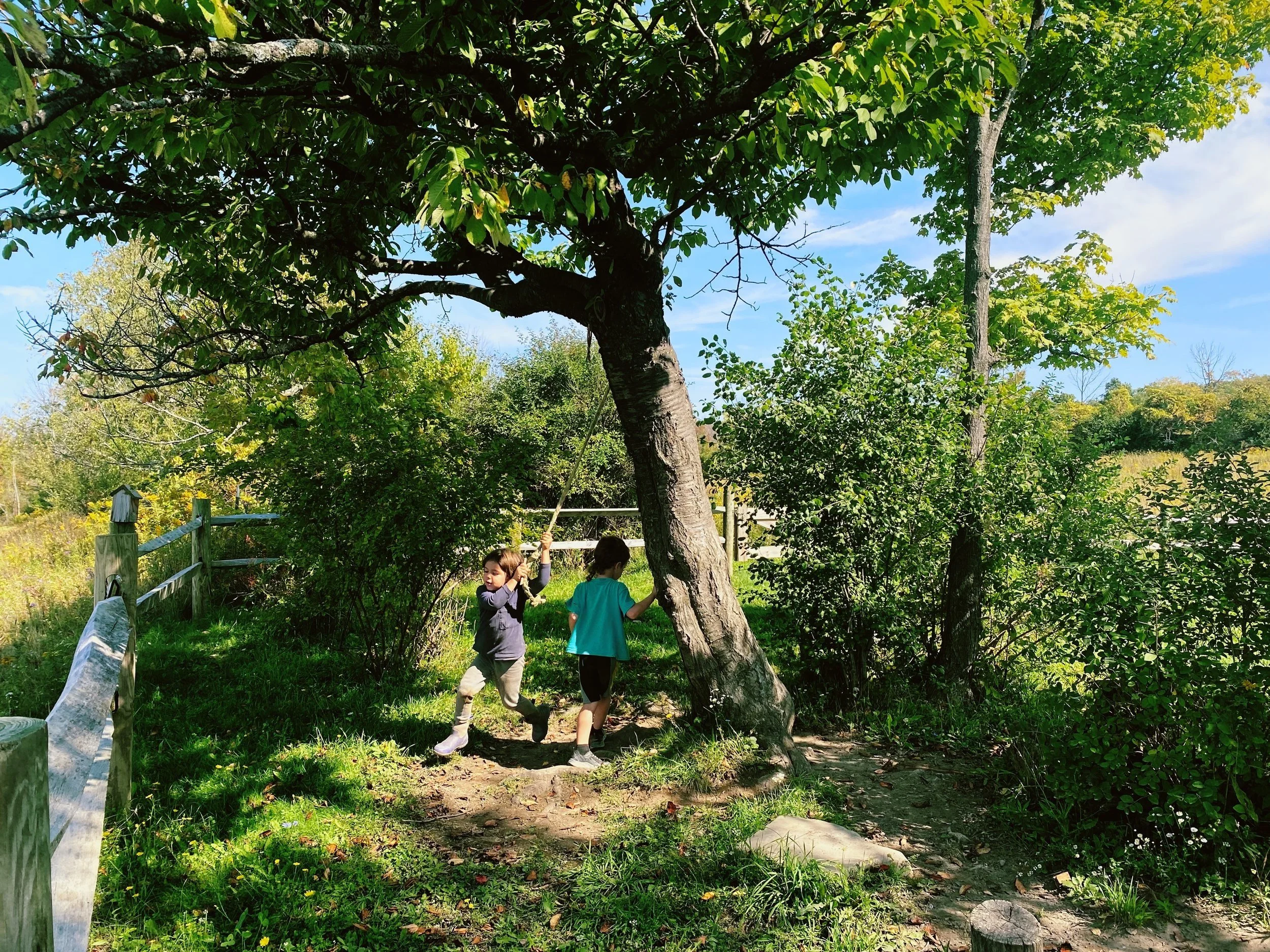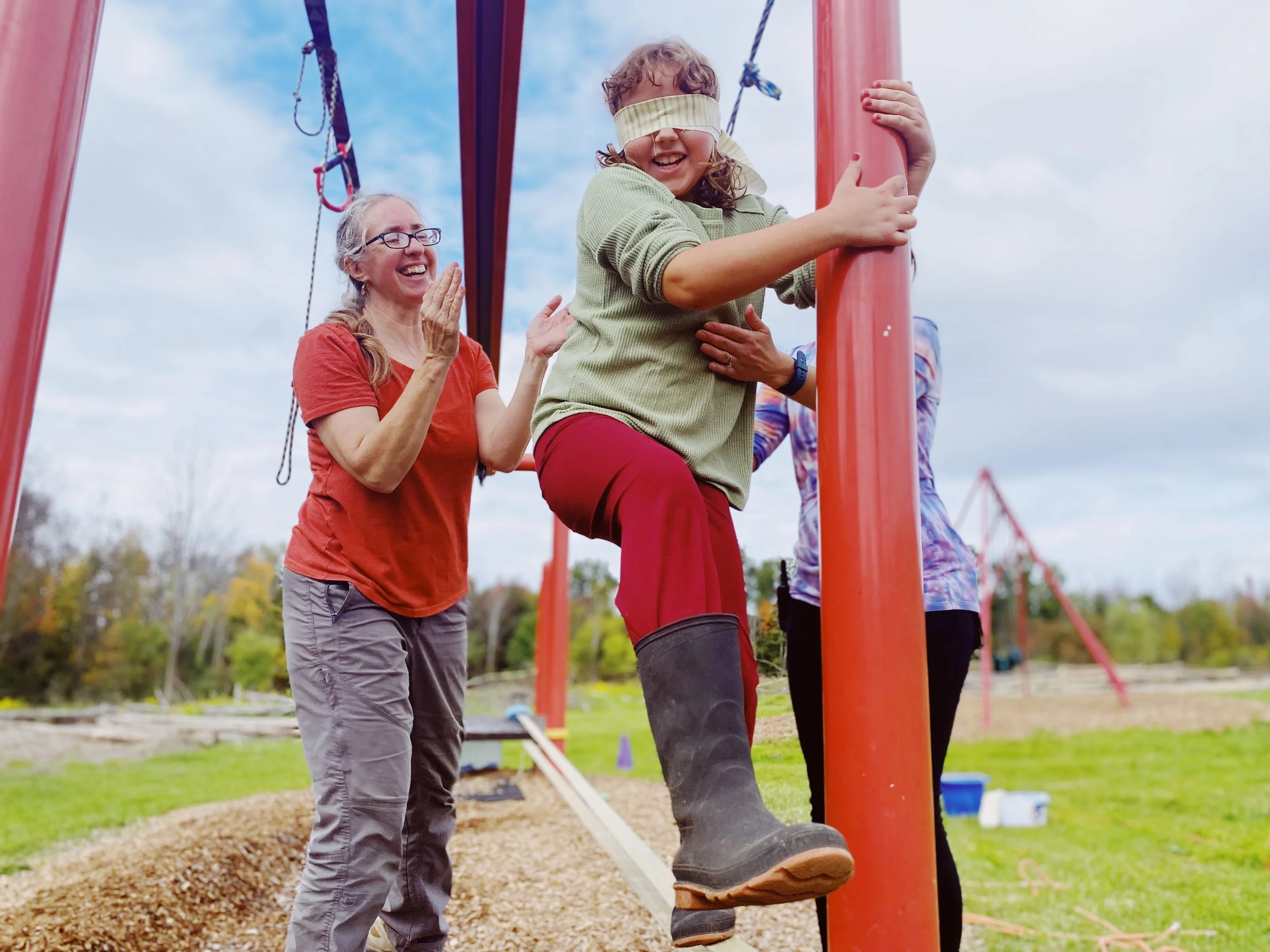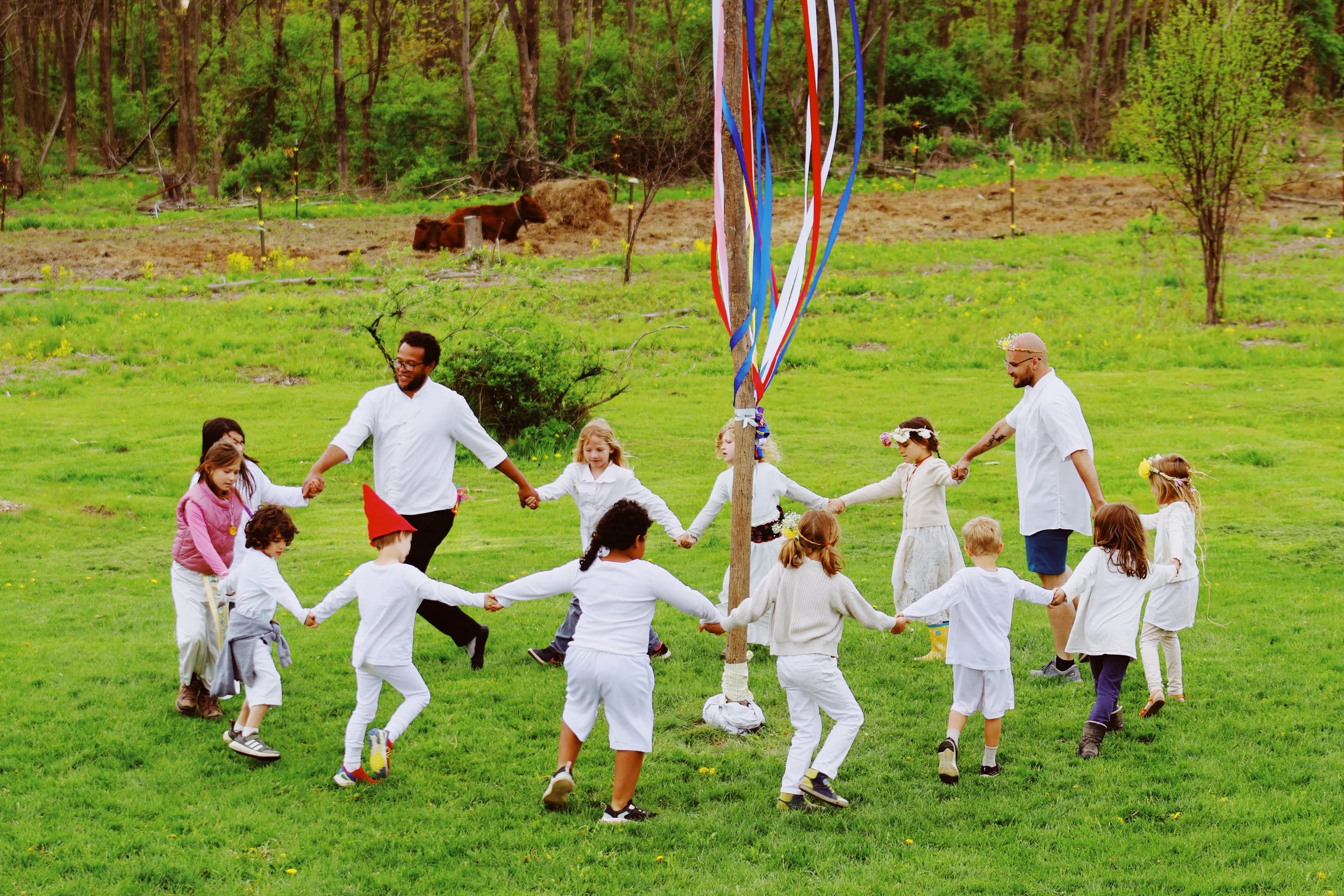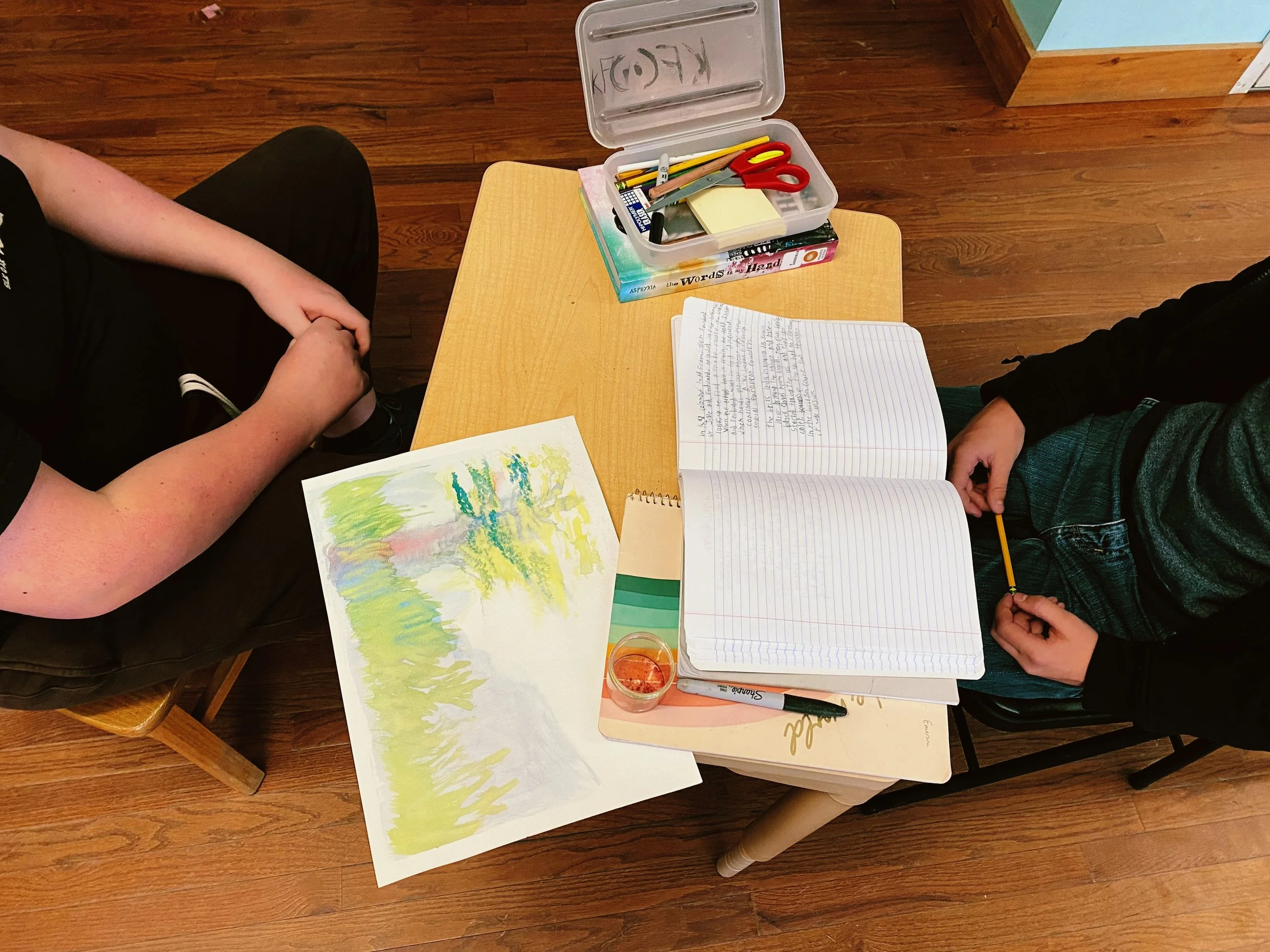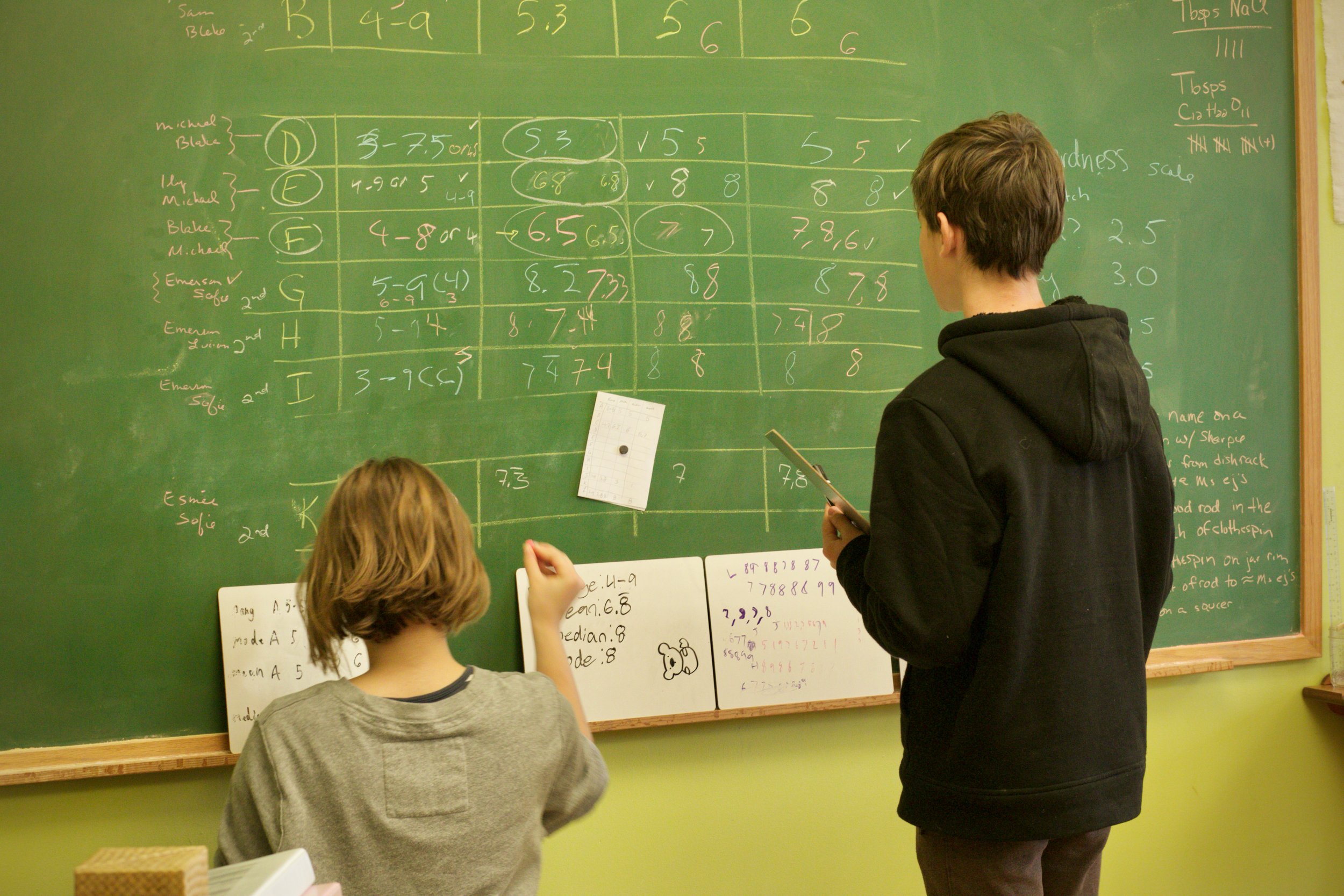
we believe…
A Waldorf education is one of the most important investments you can make in your child’s formative years. Our students grow into accomplished, thriving young people notable not only for their confidence, abilities, and interests, but for the profound human connections they form.
For more than a century, Waldorf schools have approached rigorous academics through what children need most: warm relationships, purposeful rhythms, movement, practical arts, stories, and time in nature. Today’s research in developmental cognitive neuroscience and educational psychology increasingly confirms that these practices help children focus, remember, and thrive in increasingly rigorous academic settings.
Handwriting engages visual, motor, and language systems more broadly than typing and supports letter–sound integration and later reading/spelling.
Sustained music training drives measurable neural plasticity in auditory and executive networks and supports language and attention; arts engagement supports motivation and meaning.
Exposure to nature supports attention restoration, stress reduction, and, in some studies, better working memory and self‑regulation; learning outdoors can boost engagement and retention.
Heavy screen exposure in early childhood is associated (correlational) with weaker language/EF outcomes and with brain differences in white matter tracts for language and self‑regulation. Our classrooms are screen-free.
Warm, consistent relationships predict engagement and achievement; continuity allows better attunement and co‑regulation. Our teachers loop with their students for multiple years.
Executive function (EF) underpins later academic and life outcomes, and is cultivated by emotionally safe, play-rich, language-rich, and movement-rich classrooms.
Rich oral language and shared reading are linked to growth in the brain’s language and narrative networks; unhurried, screen‑free story time supports sustained attention.
Autonomy, competence, and relatedness (vs heavy extrinsic rewards/testing) support deeper learning and creativity—consistent with Waldorf’s process‑oriented, low‑stakes assessment.
Stable daily/weekly rhythms and sleep support memory consolidation; recalling material after sleep improves learning durability.
CELEBRATING WALDORF EDUCATION
On September 19, 2019 Waldorf education marked its 100th anniversary.
In celebration, the film Learn to Change the World shows people from around the world who work on the big pedagogical tasks of our time based on Waldorf/Steiner pedagogy. It is the first film of more to come, which aim to show concrete approaches to these tasks.
THE STORY CONTINUES…
Following part 1 of the Waldorf 100 film Learn to Change the World, the second part deals with encounter, engagement and inclusion: learning that goes beyond merely accumulating information can be understood as an individual way to seek the truth.
Waldorf education is a schooling philosophy that emphasizes a holistic approach to learning that integrates academic, artistic and practical skills. It was developed by Austrian philosopher and educator Rudolf Steiner in the early 20th century.
The Ithaca Waldorf School (IWS) offers four programs for children: a 20 month to three-year-old Parent-Child Program, an Early Childhood Program for three to six-year-olds, an Elementary Grades Program and a Middle School Program.
In the Parent-Child and Early Childhood Programs, the focus is on play-based learning that supports the development of the child's imagination and creativity. Rhythms throughout the day, week and school year develop the children’s ability to orient in space and time while building vital social, emotional and cognitive skills.
The Elementary Grades curriculum focuses on a wide range of core subjects, including mathematics, science, history, geography, language arts and Spanish, while also emphasizing the arts, music, drama, handwork and movement.
In Middle School, students build on the foundation laid in their elementary years, and new subjects are introduced that will guide and build their capacities to eagerly and compassionately move out into the wider world as they develop a deeper understanding of themselves.
PARENT TESTIMONIALS
“Waldorf education meets my kiddos exactly where they are. They find joy and learning through playing, they have developed a sense of community and caring through activities with their peers, and they are building passions and interests faster than we can keep up. They love learning, and as a parent, I love knowing that this intentional education is helping to build them as people who love learning, exploring, and critical thinking, and who will have empathy for and the ability to connect with people their whole lives.”
-Andrea Alary, IWS Parent and Global Management Consultant for Accenture
“In math my children were way above average, beyond where the other sixth graders were. Both of their teachers say that they have great deductive reasoning skills, they are a pleasure to have in class, they think outside the box. My son’s teacher at Boynton Middle School said if she had to do it over again, she would have sent her own kids to Waldorf.”
-Liz Hess, IWS Alumni Parent and Nurse Practitioner at Gannett Health Services at Cornell University
“There is a feeling of humanity among the children. My child is a full person for being here. He makes friends easily and is comfortable in his own skin. He is excited about his peers’ achievements, and they are excited about his. It’s a noncompetitive environment and celebrates all qualities.”
-Elizabeth Simkin, IWS Parent and Professor of Cello, Ithaca College School of Music
ADDITIONAL RESOURCES
Brookings Institution
New Evidence of the Benefits of Arts Education
Huffington Post
How To Teach Your Kids To Care About Other People
The Guardian.Com
Medical students “raised on screens lack skills for surgery"
New York Times
The Case for Creative Play in a Digital Age
The Atlantic
The Perks of a Play-in-the-Mud Educational Philosophy
Huffington Post
Teaching Whole Child: Waldorf Schools & Teacher Engagement
National Public Radio
What is the Value of an Education in the Humanities?
New York Times
How to Raise a Creative Child. Step One: Back Off
World Econ Forum
10 Skills Needed in the Fourth Industrial Revolution
New York Times
Rethinking College Admissions
Wall Street Journal
Teach Your Child Well: Unhook Them From Technology
Teaching Kids to Crochet and Knit: Why Waldorf Schools Incorporate Crafting into their Curriculum
Nature.com
The Importance of Free Play in Nature
New York Times
Screen Addiction is Taking a Toll on Children
Washington Post
Technology Won’t Fix America’s Neediest Schools. It Makes Bad Education Worse
Washington Post
Why America’s Obsession with STEM education is Dangerous
Washington Post
STEM is Incredibly Valuable, but if We Want the Best Innovators, We Must Teach the Arts
CNN
Why Finland’s Schools are Top-Notch
New York Times
A Silicon Valley School That Doesn't Compute
New York Times
Rethinking the Colorful Kindergarten Classroom

